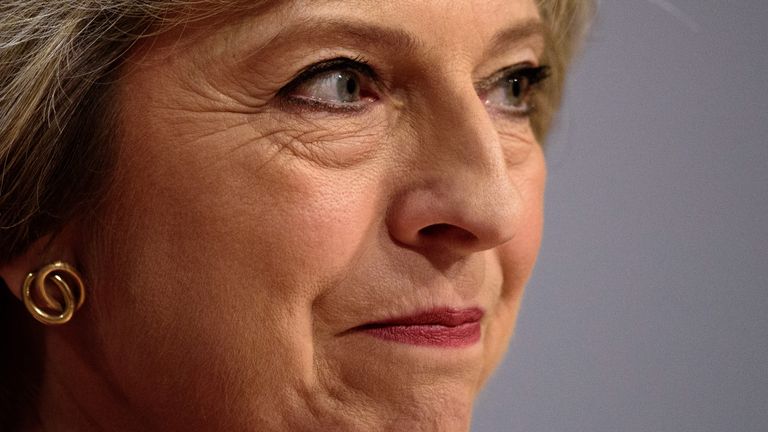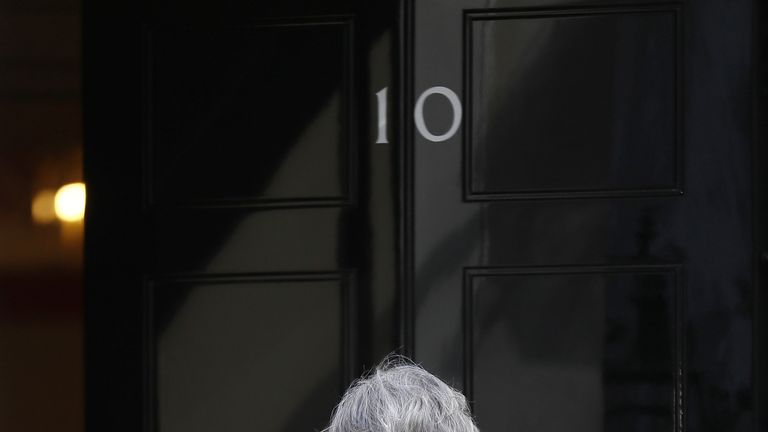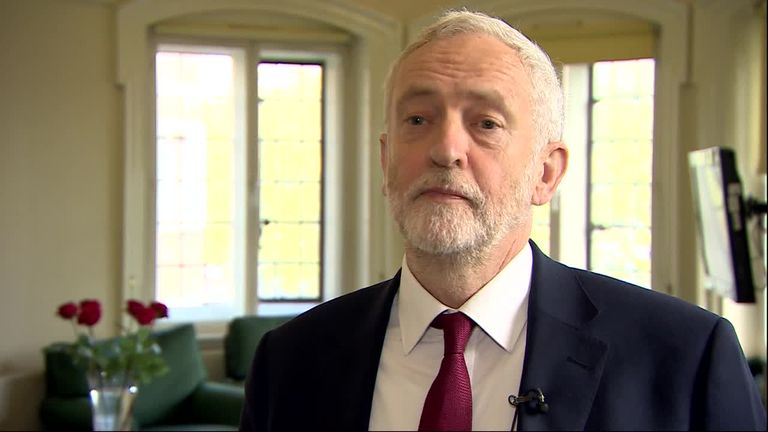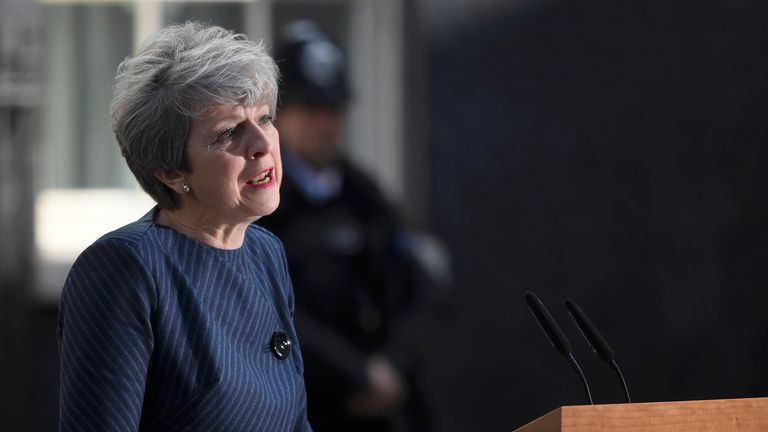This will be a Tory manifesto worth reading
With Brexit on the horizon, it will be one of the "most important political documents in a generation", says Sky's Ed Conway.
Tuesday 18 April 2017 20:05, UK
In recent decades, political manifestos have not been what they once were.
The 2015 Tory election pledges were largely written with the expectation of never having to follow them through (everyone, the Conservatives included, thought there would be another coalition).
The 2010 manifestos were all thrown in the bin when there was a hung parliament. The latter Labour party manifestos were mostly rehashes of the previous ones.
But this time around, things will be different.
The 2017 Conservative party manifesto will be one of the most important political documents in a generation. Here's why:
1. The Conservatives are almost certain to win the election comfortably. According to Sky News election analyst Michael Thrasher, based on current polling, they could win with 395 seats and a majority of 140. That is only a whisker smaller than Margaret Thatcher won in the 1983 election against Michael Foot. It would be the biggest majority - full stop - since the Blair era.
2. That majority means they will be able to carry out their manifesto. This might sound like a statement of the blindingly obvious, but the Government's current wafer-thin working majority of 17 means it can be held hostage not only by other parties but also, more importantly, by fringe members of its own party.
The upshot is that certain policies - for instance the Budget plan to raise national insurance contributions (NICs) for the self-employed - have had to be sacrificed, partly because a chunk of Tory backbenchers let it be known they simply would not support it in the Commons.
3. Theresa May likes to keep manifesto commitments. She may have wobbled over this snap election; she may have campaigned for Remain but prosecuted the Leave case once in office. But when it comes to manifesto promises, Mrs May's history suggests she is determined to stick to them.
While most of the Conservatives had forgotten about the 2010 manifesto pledge to cut immigration to the tens of thousands, as Home Secretary she did everything she could to bring it down.
That decision to u-turn on NICs happened partly because the Budget policy broke the "spirit" of the 2015 manifesto - even though it was consistent with the Parliamentary act that actually implemented the manifesto pledge - not to raise income tax, VAT or NICs rates.
So, in a sense, in the May mindset, manifesto promises trump even the country's laws. One has to assume, then, that she will be very careful about making manifesto commitments she believes she cannot achieve.
4. There were lots of silly promises in the last manifesto - that pledge not to raise any of the major tax rates being one of them. Then there was the migration "tens of thousands" promise. The pensions triple-lock.
The commitment to hit a surplus by the end of the parliament (though Chancellor Philip Hammond has already thrown that one out of the window). This is an opportunity for Mrs May to lay out a coherent set of policies to campaign under.
5. Which brings us to the most interesting question of all: what does Mrs May actually stand for? Within Westminster she is still regarded as something of a cypher. But this time there are plenty of big issues she will not be able to skirt.
What kind of a Brexit does she want? Will she lay out in black and white (in the all-important manifesto rather than just the ephemeral Article 50 letter) that Britain will indeed be leaving the single market?
Where does she actually stand on migration: does she really believe, after all her years in the Home Office, that Britain can reduce net migration to below 100,000? Does she really care about reducing the deficit?
Where does she see Britain's place in the world given the chaos in Syria, the threat of nuclear war in east Asia and the continued refugee crisis in Europe?
In the meantime, everything is guesswork. After Mrs May made her statement outside Downing Street on Tuesday morning, the pound leapt sharply higher. According to economists and financial strategists, this election could guarantee a softer Brexit.
They suspect that with that enormous potential majority, Mrs May will be able to negotiate a more sensible settlement than with baying backbenchers at her back.
Whether they are right or not remains to be seen. But there won't be long to wait. In a few weeks we will have the document that lays out the path for Britain over the next half decade.
For once, this will be a manifesto worth reading.








